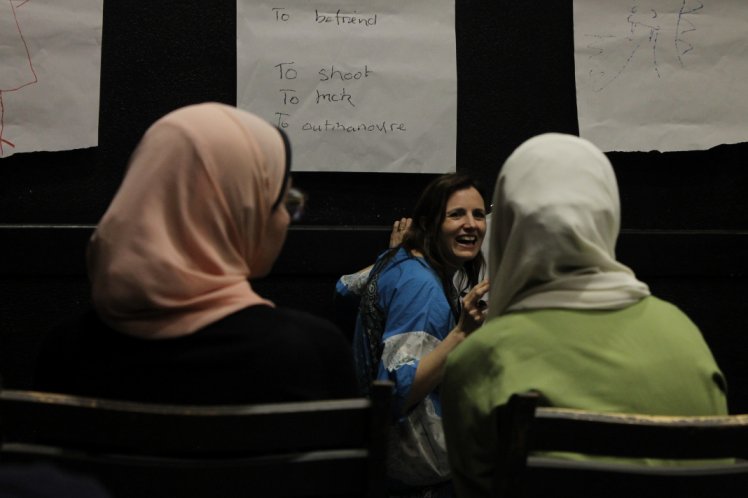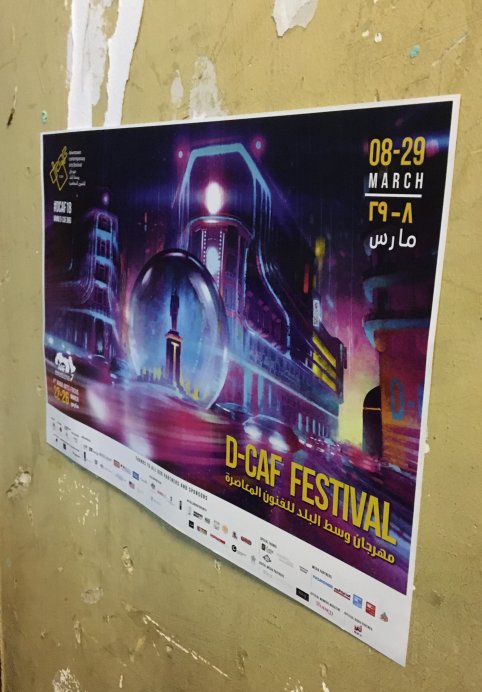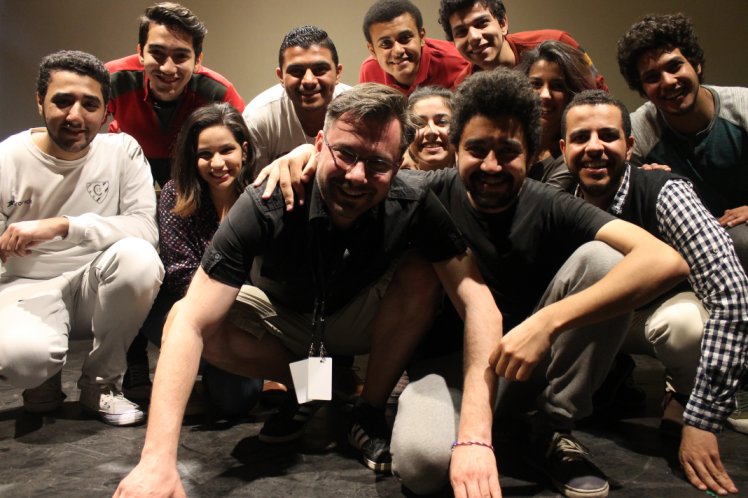26. Cairo, March 2018

Sarah Grochala teaching a workshop in Cairo
In March 2018, a group of Fence members were guests of Cairo's Downtown Contemporary Arts Festival - D-CAF - a showcase of Egyptian and Arab world theatre. We gave workshops, participated in group discussions on contemporary Arabic and European theatre, and attended a wide variety of shows.
Read Amelia Parenteau's account of the Fence visit to Cairo in American Theatre magazine.
The following is a letter from Gabriel Gbadamosi
Dear Readers,
A few weeks ago I found myself climbing out of a tomb in Egypt alone in the dark of a power cut. I’m writing because I have to tell someone. When I got home, my wife didn’t want to know. My kids looked at me like that was a bit creepy. I could almost smell my own grave clothes. So, if that’s OK, I’m going to tell you before you desert me.
It was a long way to go, crawling over loose stone slabs angled up like a slide in the steep low-ceilinged shaft that led from the burial chamber. My knee still hurts, I felt my heart pounding. I wasn’t afraid, I was just crawling back to life. One moment I was looking at the huge empty stone sarcophagus, its heavy lid propped open with rocks, the next the lights went off. I later heard there was a blackout across the site, but at the time that wasn’t what happened. I was buried. With no mobile phone in my pocket to light my way home. Shut in a tomb in complete darkness.

I have to tell you. It’s very lonely being dead. I couldn’t accept it. My whole body said No! My kids need me, I have to go back. So I started feeling my way up. Creeping. Dark and airless. My wife told me to stop smoking. Scrabbling up towards the surface. The wages of sin. I wasn’t ready. We all die. Not today. I was determined. Not yet. I pictured the face of the Egyptian guardian showing me through the passageways above – the stone table on which they bandaged the Pharaoh’s mummy, the chamber with a sunken bath in which they immersed the body. I could get out. This was the tomb of the Pharaoh’s physician, at the foot of Cheops’s pyramid. Outside would be the Sphinx.
But it wasn’t the guardian who met me at the entrance. It was an Englishman looking at me steadily. I couldn’t hide, he could see it in my face; it would get out. I opened my mouth but nothing came, not even a swarm cloud of wasps to erase his face and silence his witness. ‘Hello,’ he said, ‘what’s happened to you?’ And then I realised, this was Egypt, the week before Passover, which is Easter. I was free to go.
Only now something was changed. When the guardian of the tomb looked at me, he said, ‘You’re Egyptian?’

Dimitar Usunov with his workshop pupils in Cairo
I shook my head and said, ‘London.’ He looked at me again, ‘But Egyptian?’ Sure, tourism has collapsed, there are few foreign visitors, but I also sometimes look Brazilian. He shrugged, and sent me on alone down the shaft into the after-life of the doctor’s waiting room. Now I was back; I was blind, now I could see. All those Egyptian writers I’d been meeting had felt how I feel – recoiling from the Islamist turn in the revolution they joined back into the repressive grip of an all-powerful military ruler – guilty, unable to speak, closed in. Struggling out of their bandages for political space, they too feel they have sinned against life.
But forget I ever told you.
Best,
Gabriel